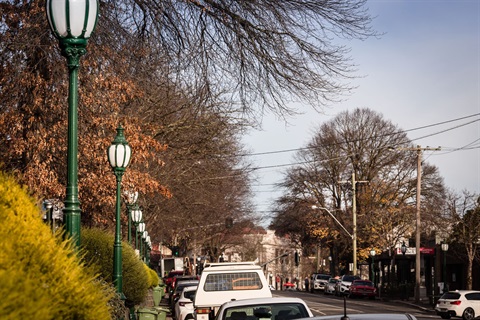Serving this community as a Councillor and Mayor is an honour and privilege.
Councillors are the governing body of Council. Equivalent to a board of directors, our role is to interpret and implement our community’s values, vision and strategic direction.
From recent conversations, the differences between the roles and responsibilities of a Councillor and Council are largely misunderstood and sadly, leading to anxiety and anger in the community.
Local government is complex. Being a leader is challenging. Making decisions that are in the best interest of the long-term future of our community is hard and not always popular or appreciated at the time.
The role and obligations of council has evolved over the years. Horsham Rural City Council delivers more than 80 different services to our community, maintaining our 3000km of roads and collecting the rubbish are just two.
Other council responsibilities include maternal and child health, library, livestock exchange, art gallery, aquatic centre, parks and gardens, and emergency management.
The Local Government Act 2020 clearly sets out the role of a Councillor. Councillors are required to:
- Participate in the decision-making of the council
- Represent the municipal community in that decision-making
- Contribute to the strategic direction of the council through the development and review of key strategic documents of the council, including the council plan.
But what does this mean in practice?
Make decisions. As elected to do, your seven Councillors make decisions for and on behalf of the community covering a diverse range of topics from adopting the budget to awarding contracts, endorsing draft plans for community consultation to approving precinct plans and strategies.
Community consultation is so important, and council regularly and actively seeks community feedback to inform council plans and strategies. Although, feedback often identifies opposing views within the community.
Council is committed to good governance and best practice. Council officers support Councillors deliver good governance by providing detailed reports that have been through a rigorous process, and contain clear, concise and deliverable recommendations, drawing on their knowledge, experience and expertise to explain the background, context, benefits and implications of the decision, budget allocation and how the decision links to the council plan objectives and community vision.
Councillors make their own decisions by weighing up all the facts and differing points of view to ensure that the diverse interests and needs of our community now and into the future are being considered and met.
It is the responsibility of the Council officers to operationalise and deliver Council decisions, resolved in a formal meeting of Councillors.
Strategic Direction. Councillors guide the delivery of the community vision through the development of the council plan, annual action plan, other long-term plans, local policies, set service standards and priorities, and monitor the performance of the organisation.
Budget. Councillors are responsible for setting the long-term financial strategy and annual budget, ensuring sufficient resources are allocated to deliver the services, facilities and infrastructure that our community needs and deserves, and applying for additional funds from state and federal governments to assist in the delivery of key community priorities. Every council officer report explains the budget implications of the proposed decision.
With two years until the 2024 council election, I encourage community members to start thinking about either standing themselves or tapping others on the shoulder and suggesting that they consider this important community role.







